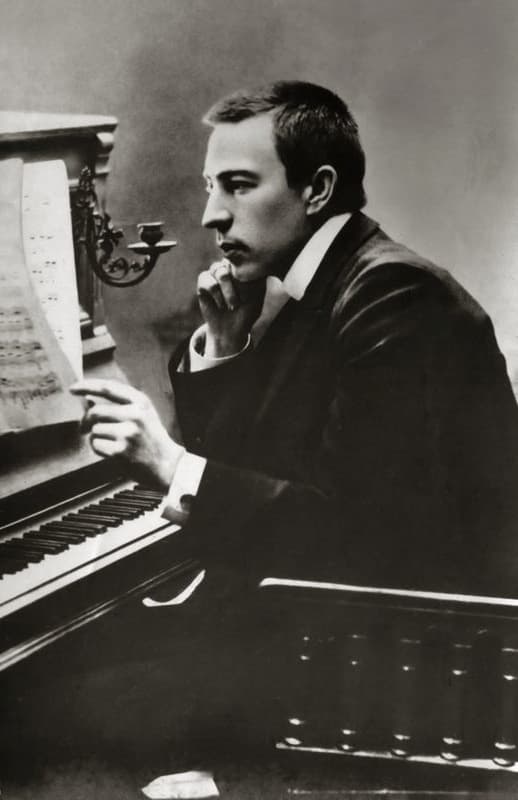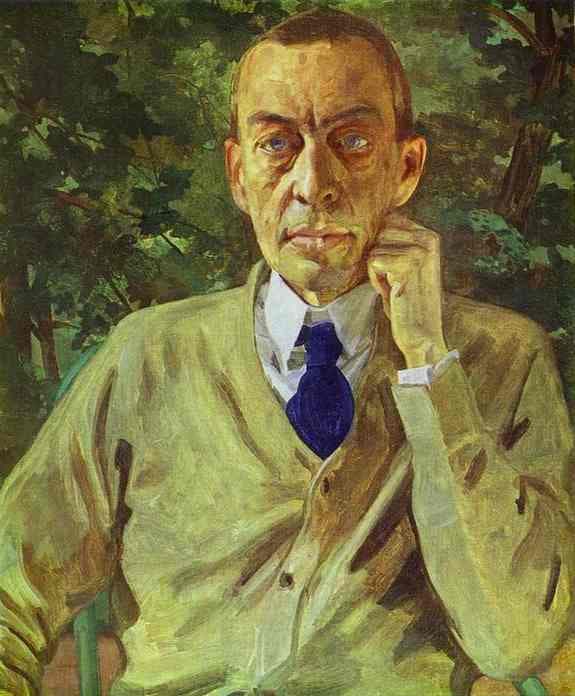Sergei Rachmaninoff (1873-1943) is widely regarded as one of the greatest composers for the piano in history, and his music is beloved and widely performed to this day.
So what makes Rachmaninoff’s piano music so special?
It probably helped that Rachmaninoff was an extraordinarily talented pianist himself and the instrument dominated his creative thinking from the outset. He began playing the piano at a young age and by his early teens, he was already performing in public. He went on to study at the Moscow Conservatory, where he received a rigorous musical education that included extensive training in piano performance. This background gave him a deep understanding of the instrument, both technically and musically, which is clearly reflected in his piano music.

Sergei Rachmaninoff
As a master of the piano who fully understood its capabilities, one of the hallmarks of Rachmaninoff’s piano music is its virtuosity. His music is technically demanding and requires exceptional skill and dexterity to perform. But he was also careful to ensure that his virtuosity always served the music, rather than being an end in itself, and his works for piano – from the miniatures and salon pieces to the great piano concertos – are not just impressive displays of technical prowess, but also deeply expressive and emotionally evocative, full of brooding passion that remained a powerful force in his music throughout his compositional life.
Another important aspect of Rachmaninoff’s music for the piano is his use of harmony. He was a master of the Romantic style, which emphasized rich, lush harmonies and emotional expressiveness, and he used a wide range of harmonies, including complex chords and lush, sweeping arpeggios to create a sense of richness, vivid colours, depth, and emotional power.
Rachmaninoff also had a gift for melody, and his piano pieces are full of beautiful, memorable themes. These melodies are often developed over the course of the piece, becoming more complex and intricate as the music unfolds. This creates a sense of narrative and emotional progression, taking the performer and listener on a journey through the music.

Portrait of Sergei Rachmaninoff by Konstantin Somov, 1925 © Wikipedia
Finally, Rachmaninoff’s music for the piano is deeply personal and expressive. He wrote many of his pieces as a way of processing his own emotions and life experiences, and this is reflected in the music itself. His pieces are full of passion, longing, and a sense of yearning. They plumb the depths and scale the heights of emotion, and they speak of and to the human experience in a way that is both universal and deeply personal.
His most famous works for piano are surely the second and third piano concertos, the Rhapsody on a theme of Paganini, and the Preludes in C-sharp minor and G minor. But his oeuvre for piano is extensive and varied – the opp. 23 and 32 Preludes, two sets of Études-Tableaux (opp. 33 and 39), transcriptions of Bach, salon pieces like the Morceaux de fantaisie and Moments musicaux, the Symphonic Dances, works for four and six hands piano, variations (on themes by Chopin and Corelli), two piano sonatas, and many other miniatures and shorter works. The wonders of modern audio technology mean that it is possible to hear Rachmaninoff playing his own music on platforms like Spotify, which gives a wonderful insight into how he approached his own and others’ piano music in performance.
Here he is playing Schubert:
Franz Schubert: 4 Impromptus, Op. 90, D. 899: No. 4 in A-Flat Major (Sergei Rachmaninoff, piano)
To mark the 150th anniversary of the composer’s birth on 1st April, here is a handful of my favourite works by Rachmaninoff:
Sergei Rachmaninoff: Études-tableaux, Op. 33 – No. 8 (5) in G Minor: Moderato (John Lill, piano)
Sergei Rachmaninoff: Violin Partita No. 3 in E Major, BWV 1006: I. Prelude (Jorge Bolet, piano)
Sergei Rachmaninoff: Piano Concerto No. 3 in D Minor, Op. 30 – I. Allegro ma non tanto (Boris Giltburg, piano; Royal Scottish National Orchestra; Carlos Miguel Prieto, cond.)
Sergei Rachmaninoff: Etudes-tableaux, Op. 39 – No. 2 in A Minor: Lento assai (Evgeny Kissin, piano)
Sergei Rachmaninoff: Moments musicaux, Op. 16 – No. 5 in D-Flat Major: Adagio sostenuto (John Lill, piano)
For more of the best in classical music, sign up to our E-Newsletter




You covered everything there is great about Rachmaninov’s piano composition. All of that makes them memorable and exciting.
Rachmaninov is one of my favourite composer, his romantic music creates turnado of emotions . My most favourite masterpiece is piano concerto # 2.
An impressive, but widely unknown work is the Choral symphony “the Bells” which deserves more frequent performances.. It is a truly chilling musical experience about life and death and shows his mastery in orchestration.
.
Piano concertos, especially Rach 3 played by Van Cliburn 2022 gold winner Yunchan Lim.
My mother heard Rachmaninov give a concert in Chicago in 1939 while I was in her womb. I have always loved his music. Maybe that’s why.